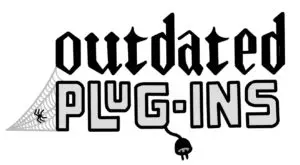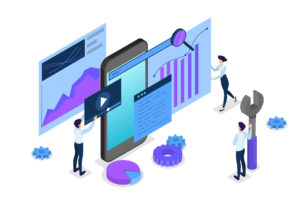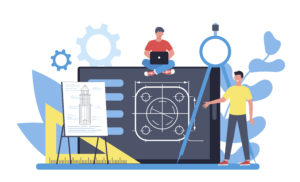
Search engine optimization (SEO) is a long-term investment that requires a great deal of ongoing work. I like to use the analogy that it’s like maintaining your lawn—it requires patience and frequent upkeep. Just like a beautiful lawn doesn’t grow overnight, a website doesn’t rise to popularity in a short period of time, no matter how strong your SEO strategy is. You’ll need to monitor it, make adjustments, and gain credibility and popularity over time. There are a number of mistakes many businesses make in their SEO strategies that can stunt the growth of their SEO, or worse, sabotage it altogether.
For example, there are plenty of digital marketing agencies out there that promise fast results, and I caution you against using them. By taking shortcuts or gaming the system, you risk being penalized by Google’s algorithm.
There are many things that can cause Google to penalize your site, from spam links to duplicate content. These things are called “negative SEO,” because they lower your SEO rankings. When Google notices one of these triggers, it can even result in a manual penalty, which makes your website end up in “Google jail.” Often, these mistakes are not your fault. They might be the fault of someone inexperienced on your team who doesn’t have the necessary skills, or someone trying to take a shortcut.
You can usually avoid making any of these mistakes by hiring a reputable digital marketing agency and hiring individuals experienced in search engine optimization. If something does go wrong, these experienced professionals should be able to help you resolve it quickly. I recommend using Google Search Console to monitor your website and to find resolutions to problems that arise. It’s the only way you can communicate directly with Google, so it’s vital in the case that you do get penalized.
Here are some common negative SEO practices to watch out for and avoid by knowing about them in advance:
SEO Shortcuts
There are many shortcuts available that promise quick results to SEO, but they usually rely on black hat strategies that will ultimately result in a penalty. This often happens when businesses hire inexperienced SEO teams or individuals, who don’t necessarily know better, and may take shortcuts in order to cut costs or save time. The tricky thing about these shortcuts is that they might work well at first, but ultimately Google will catch up and penalize that behavior.
Private Blog Networks
A private blog network (PBN) is a group of sites that are used to create backlinks to promote each other. PBNs are often used by digital marketing agencies to increase rankings and traffic for their clients. While this strategy can be done successfully, it’s very difficult to execute without alerting Google that something is going on. Google can detect the patterns of links built into these websites and will penalize them if it catches on. I don’t recommend using PBNs, and I’d advise anyone working with a digital marketing agency to ask them whether they use PBNs, and steer clear of agencies that do. It’s not worth the risk involved.
Duplicated Content
Google’s algorithm punishes duplicated content both within your website and across the web. If your website has the same content as another website, Google will recognize it as plagiarism. And while it does its best to determine where the content originated, it’s not always correct, so you can be penalized even if someone else copies your work, so it’s important to monitor for plagiarized content. The same goes for your own content. While you certainly don’t intend to plagiarize, hiring a cheap content writer may result in copied content. Often writers who produce a great deal of content for a relatively small cost reuse much of their content and simply change some details, which can cause you to receive a penalty from Google. This is why it’s so important to hire high-quality, experienced content writers.
It’s also important that every page on your website is unique and you don’t have any duplicated content within your website. That means if you have a page for each location where you do business, each of those pages needs to have completely different content. A good rule is to never copy and paste content anywhere on your website.
Outdated Plugins
Outdated plugins are a common way that a site’s SEO can be damaged, especially if the site is based on WordPress. WordPress is open-source, which means that anyone can access its platform, including those with malicious intent. People develop viruses that are able to get past the code, so plugin developers need to frequently update their software to close the gaps where the attacker was able to get in. If you don’t update your plugins, your site is less secure, and you’re putting users at greater risk of being exposed to viruses and malicious software.
The best way to avoid this scenario is to update your plugins manually whenever updates are available. Updating manually is better than updating automatically, because there’s a chance that an update will crash your site. If the update is automatic, you won’t know your site is down right away.
These negative SEO practices can easily be avoided by hiring experienced and reputable SEO experts to help you craft a strong SEO strategy and monitor and adjust it as needed. Remember that SEO is a long-term investment—if a strategy promises quick results, it’s likely a risky tactic that could ultimately come back to bite you. SEO’s effects are cumulative, and a strong SEO strategy plans for the long run. By avoiding negative SEO practices, you can ensure your investment pays off in increased traffic to your site and ultimately increased revenue.




